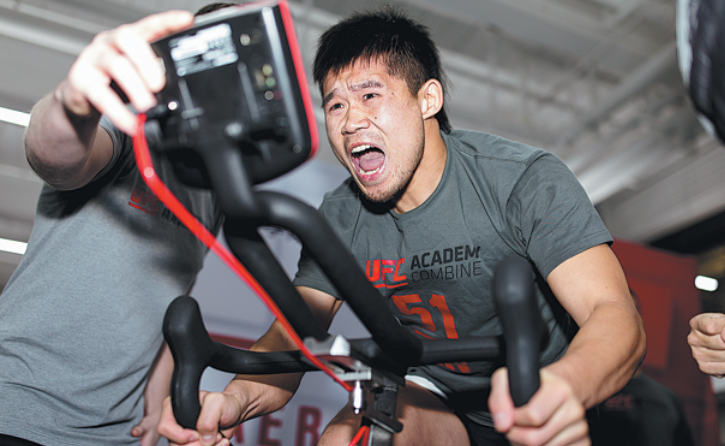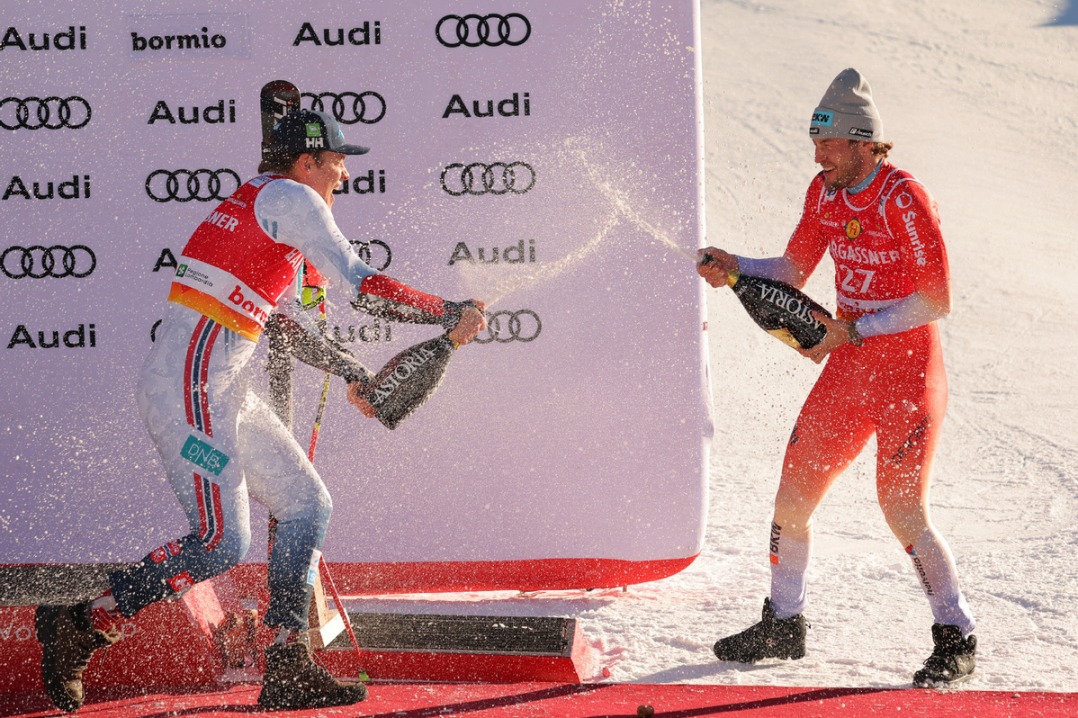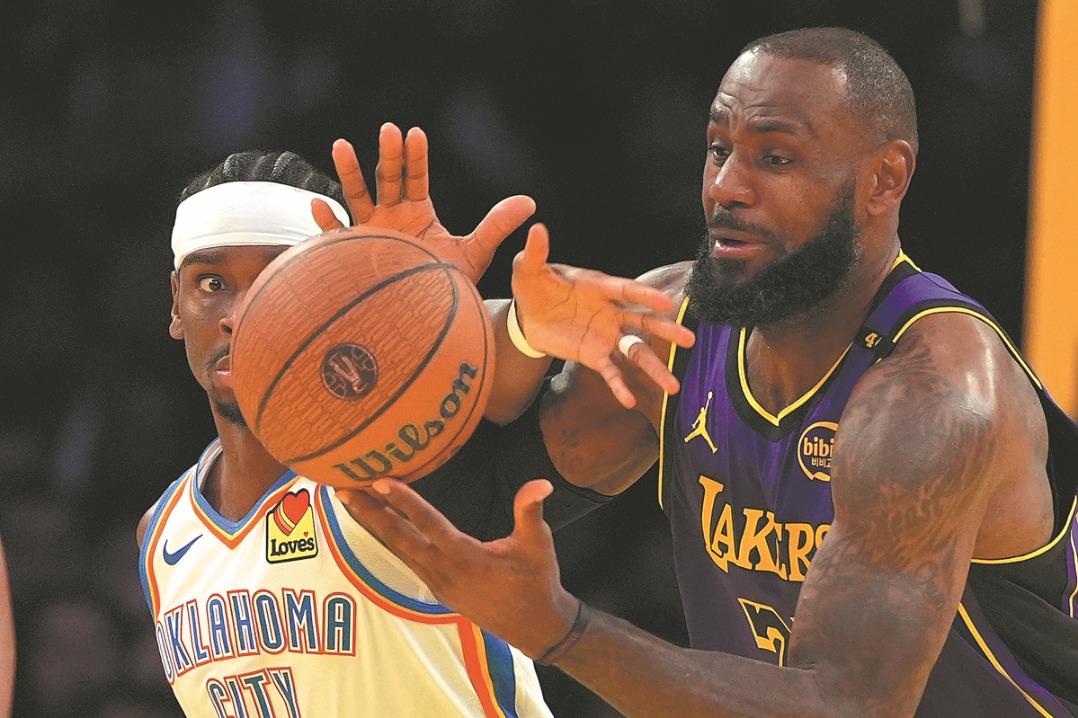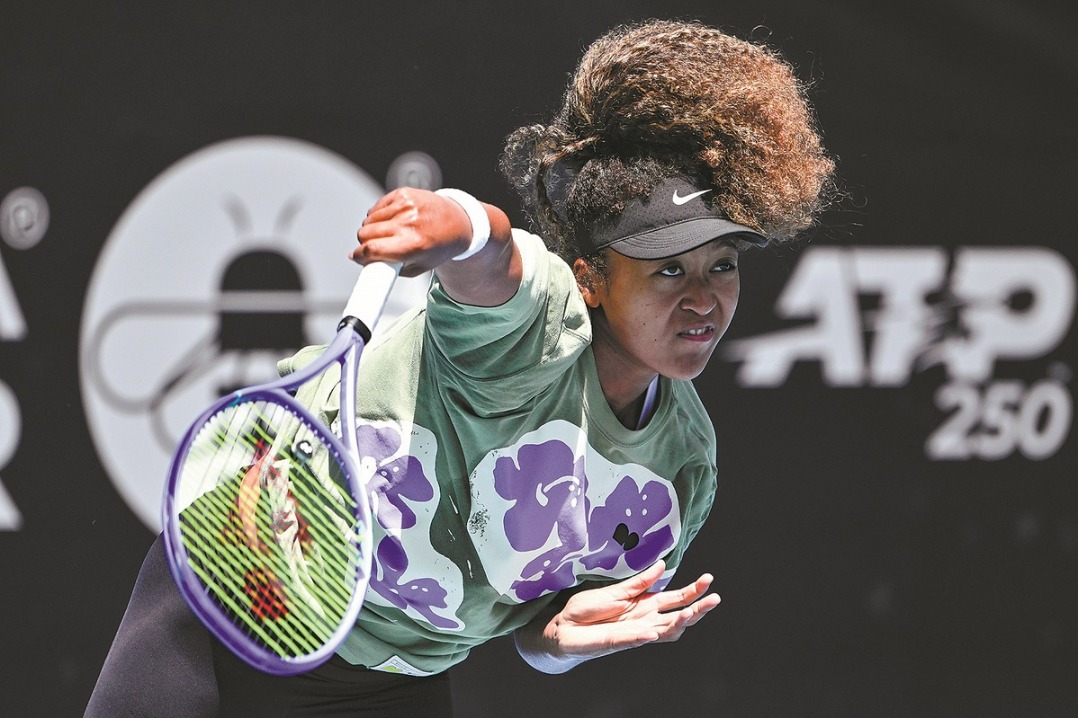Arduous journey resumes toward Ultimate destination


China's next-gen mixed martial artists have officially resumed their pursuit of Octagon stardom thanks to the reopening of the Ultimate Fighting Championship's Performance Institute in Shanghai.
The 8,600-square-meter downtown facility, which was converted from an abandoned warehouse, has welcomed back 24 fighters since Aug 3 after being given the all-clear by authorities with the coronavirus successfully contained in the city.
Athletes returning from across the country must observe stringent virus prevention procedures upon entry, including centralized isolation and nucleic acid testing, according to Kevin Chang, UFC's senior vice-president of Asia Pacific.
"The pandemic had put our efforts to develop local talent on hold since February. We've taken some extra precautions, but are finally at a point where we feel it's the right time to reopen," Chang told China Daily in a telephone interview last week.
"We test them on their way in, monitor where they go and we have a housing facility just next door. They just move between the PI and the housing facility. In that sense, it is relatively a safe bubble."
The PI will also educate athletes on anti-COVID-19 protocols on their arrival, including visit management, a report mechanism should they come into contact with high-risk people and an application process should they leave Shanghai.
Having stayed isolated from each other while working out at home for almost half a year, the fighters have been raring to shake off the rust and sharpen their punches at the cutting-edge facility, which is three times larger than UFC's original PI, opened in Las Vegas in 2017.
"I was like over the moon when I was called back," said Shang Zhifa, a kickboxer, who reported to the institute the first day it reopened. "With the facilities and all the training support available here, I feel like I am building up my strength gradually and everything seems safe here."
Opened in June last year, the institute is considered the anchor of UFC's ambitious talent-cultivating program in China. A 30-strong support team assists athletes using a wealth of amenities, including cardio and strength training equipment, hypoxic labs and cryotherapy chambers.
The PI also hosts the UFC's Asian headquarters and the promotion's content production unit.
The training expertise, which includes tailor-made plans to cater to each fighter's style, is what makes the institute so unique, said Lyu Kai, a judo specialist.
"The biggest difference here is the abundant resources provided to each athlete and the variety in training courses compared to the traditional training centers," said Lyu, who started judo training aged 12 at Changning district's junior sports school, a State-run facility, in Shanghai.

"If you are looking for real combat skills from actual experiences in the Octagon, and know-how on how to excel in MMA as a pro, then you are in the right place."
Once a niche sport in China, MMA is rapidly gaining mainstream recognition here thanks to the rise of homegrown fighters such as reigning world champion Zhang Weili.
After winning the UFC's strawweight belt at home last August and then retaining it in March, the 30-year-old Hebei native has singlehandedly elevated MMA's profile in China to a whole new stratosphere.
"It's been phenomenal," Chang said of Zhang's impact. "Weili is the north star and a great inspiration to all of our fighters in China. There is no question that she's entered into the collective consciousness in Asia."
Now with their training back to the requisite intensity, both Shang and Lyu are eyeing potential bouts at Dana White's Contender Series Asia, which has been postponed until next year due to the pandemic.
The series, which is debuting in Asia and is based on its original American model, offers fighters the chance to impress UFC president White and ultimately earn contracts.
"To put it simply, it's the biggest opportunity of their career," said Chang. "It's a great opportunity for these prospects to showcase their skills in front of the matchmakers to hopefully earn their spots in the UFC. They have to win in an amazing and impressive way."
For talents produced by China's traditional sports system, diversifying their skill set is the most critical area for improvement, Lyu reckons.
"Zhang Weili has proved that Chinese can also stand out in UFC, giving us a big motivation and a clear goal to chase in our own way," he said.
"As long as I can continue perfecting the combination of judo, wrestling and boxing skills as I do at the PI, I believe I can earn a UFC contract and a title shot in three or four years."
Most Popular
- A summer of golden memories
- China's Wang, Sun lead ITTF world rankings
- Three more skiers airlifted off 2026 Olympics slope in Bormio
- Ending 2024 on a high, Napoli returns to top of Serie A
- Osaka won't 'hang around' if the results don't come
- James still king of the court at 40






























